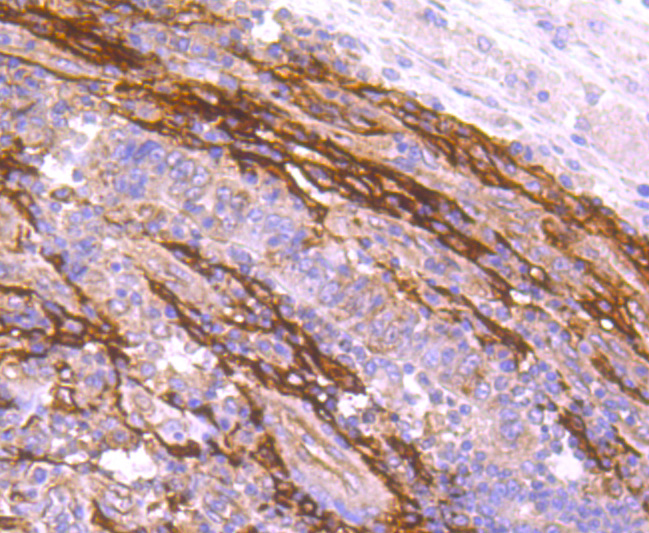Product Detail
Product NameFAP1 Rabbit mAb
Host SpeciesRecombinant Rabbit
Clonality Monoclonal
PurificationProA affinity purified
ApplicationsWB, IHC
Species ReactivityHu
Immunogen Descrecombinant protein
ConjugateUnconjugated
Other NamesAPO1/CD95 (Fas) associated phosphatase antibody
DKFZp686J1497 antibody
FAP 1 antibody
FAP1 antibody
Fas associated phosphatase 1 antibody
Fas associated protein tyrosine phosphatase 1 antibody
HGNC:9646 antibody
hPTPE1 antibody
Phosphatase rip antibody
PNP 1 antibody
PNP1 antibody
Protein tyrosine phosphatase 1 Fas associated antibody
protein tyrosine phosphatase 1E antibody
Protein tyrosine phosphatase non receptor type 13 antibody
Protein tyrosine phosphatase nonreceptor type 13 antibody
Protein tyrosine phosphatase PTPL1 antibody
protein tyrosine phosphatase, non-receptor type 13 (APO-1/CD95 (Fas)-associated phosphatase) antibody
PTP BAS antibody
PTP BL antibody
PTP E1 antibody
PTP1E antibody
PTPL 1 antibody
PTPL1 antibody
PTPLE antibody
PTPN 13 antibody
PTPN13 antibody
Tyrosine protein phosphatase non receptor type 13 antibody
Accession NoSwiss-Prot#:Q12884
Uniprot
Q12884
Gene ID
2191;
Calculated MW95 kDa
Formulation1*TBS (pH7.4), 1%BSA, 40%Glycerol. Preservative: 0.05% Sodium Azide.
StorageStore at -20˚C
Application Details
WB: 1:500-1:1,000
IHC: 1:50-1:200
Immunohistochemical analysis of paraffin-embedded human colon cancer tissue using anti-FAP1 antibody. Counter stained with hematoxylin.
FAP (fibroblast activation protein) is a cell surface glycoprotein and serine protease that is expressed primarily in fetal mesenchymal tissues and epithelial cancer fibroblasts. In cancer, FAP functions to promote cellular proliferation. In embryonic development, FAP functions to remodel developing tissues. FAP acts as an integral membrane gelatinase composed of N-glycosylated proteolytically inactive subunits. FAP expression on chondrocyte membranes is upregulated by the combination of the cytokines IL-1 and OSM and has been shown to increase in osteoarthritic patients. This expression is co-localized with MMP-1and MMP-13 as well as CD44 (variants v3 and v7/8). Mice that lack all copies of the FAP gene have been found to be fertile and to have developmental defects or change in cancer susceptibility.
If you have published an article using product 49535, please notify us so that we can cite your literature.



 Yes
Yes



